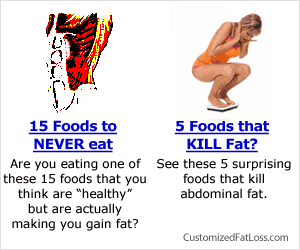MCTs and Weight Loss
As much as we work hard in the gym to burn fat and stay in control over our diets, we will lose fat, but I am always looking for ways to ease the process, aren’t you? That’s why I find the scientific studies on medium chain triglycerides and weight loss to be so intriguing.
Research has reported that the fatty acids from MCTs in coconut oil (CO) are not easily converted into stored triglycerides, and so they cannot be readily used by the body to make larger fat molecules. Instead, it is readily absorbed and goes right to the liver where it increases themogenesis. One animal feeding study evaluated body weight and fat storage for three different diets-low-fat diet, high-fat diet containing long-chain triglycerides (LCTs), and a high-fat diet containing MCTs and after 44 days, the low-fat diet group had stored an average of 0.47 grams of fat per day; the LCT group stored 0.48 grams/day, while the MCT group deposited only 0.19 grams of fat per day, a 60% reduction in the amount of fat stored.
This shows that when MCTs are substituted for LCTs in the diet, the body is much less inclined to store fat. AND, when we eat sensibly, a diet containing MCTs is more effective than a low-fat diet at decreasing stored fat!
Another human study, showed that the MCT-containing meals caused an average 12 percent increase in basal metabolic rate as compared with a 4 percent increase with the LCT-containing meal. So how do we get MCTs in our diet? Well CO is nature’s richest source of MCTs. Believe it or not, the medium-chain fats in coconut oil are similar to fats in mother’s milk. Coconut oil can be used as an addition to your post or pre workout shake.
More ideas for using coconut oil:
Stir-fry or sauté veggies, eggs, poultry, fish with coconut oil for a health-conscious light flavor
Make your own mayonnaise with coconut oil
Use it on your salads
Try it on popcorn instead of butter
Kurt Nimmo is a health specialist and exercise guru. For more tips and advice by Kurt, visit http://www.kurtnimmo.com






-SMALL.gif)
